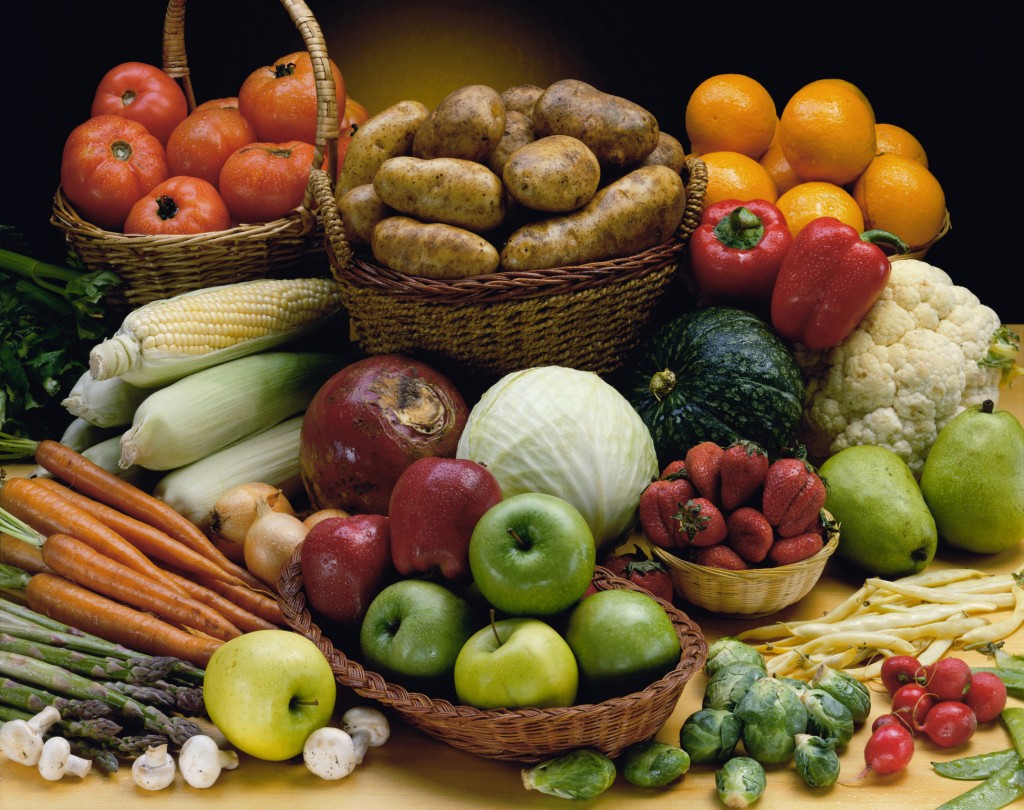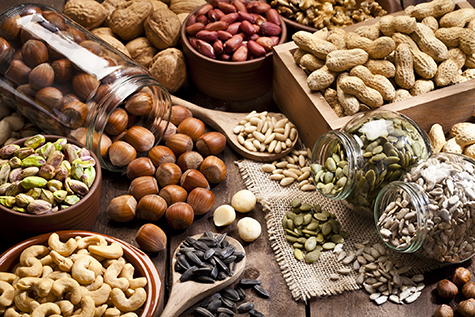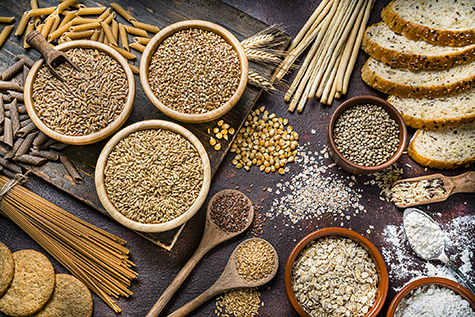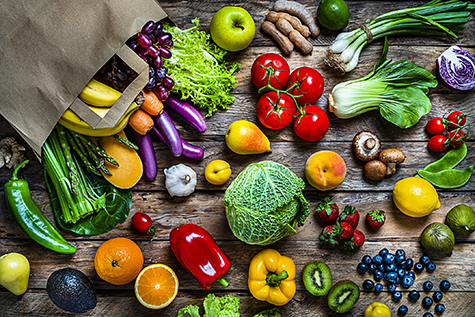Foods That Can Help You Feel Full and Lose Weight



It may seem counterintuitive that eating certain foods can support weight loss but studies have shown a link between some types of foods and better weight management. For example, high fiber foods including whole grains, fruit, vegetables and nuts have been associated with lower body mass index (BMI) in large human studies. A feeling of fullness and concentrated nutrients in these foods may be part of the connection to a reduced BMI, smaller waist circumference and reduced risk of being overweight. It should be noted that simply increasing the amount of any of these foods listed below will not in itself equal weight loss. These foods are associated with a healthy weight when incorporated into diet where caloric intake is appropriate for weight management and many of the studies also list physical activity as a factor in a healthy weight. Read on to learn about healthy foods to include in your diet this year:
 Nuts
Nuts
Nuts like almonds, walnuts, pistachios, Brazil nuts or any of your other favorites are a notoriously delicious, calorie-dense food. Studies show that people who regularly include nuts in their diet have healthier body weights. Nuts are rich in vitamins, minerals, antioxidants and fiber. They have also been associated with increased satiety, or making a person feel fuller and satisfied after consuming them. A portion control challenge, nuts are easy to over-eat. Choose a variety you have to shell yourself and stick with one 1-ounce serving per day or up to five ounces of nuts total per week, focusing on a variety of types. People are generally surprised at how small a portion of nuts is; this is an easy to over-eat food. Bonus: eating nuts is also associated with reduction in coronary heart disease!
 Whole Grains
Whole Grains
Many people fear carbohydrates as weight gainer foods, but research does show that high fiber, complex carbs aid in healthy weight management in the long term. Whole grain consumption is associated with a lower BMI, smaller waist circumference and general reduced risk of being overweight. It is true that more refined carbohydrates like potato chips, refined grains (‘white’ flours), and sugar-sweetened beverages (think juice and soda) are associated with weight gain; not all carbohydrates are created equal when it comes to body weight. For best results, choose the least processed, higher fiber types of grains. Choose oats, quinoa, brown rice, whole wheat, barley, and other cereals. Of course portion size still counts; common portion sizes of whole grains are generally 1/2 cup, one slice of bread, or one ounce of dry pasta or rice.
Fresh Produce
It is no surprise that a higher intake of colored veggies has been linked to a healthier weight. These fiber rich, nutrient dense foods also contain a lot of water and are very filling as well as nutritious. Large, long-term studies have found that participants with the highest reported intake of fruits and vegetables had as much as a 24% lower adjusted risk of becoming obese over time. Keep in mind that while some studies do show a link between eating a higher level of produce and healthier body weight, simply eating fruits and veggies on top of an otherwise unhealthy diet will not yield the desired results. Be sure to include a variety of fresh produce, nuts, and whole grains in your diet in addition to other healthy behaviors such as physical activity, good sleep and stress management techniques to maximize the benefit of these foods and maintain a healthy weight.
References:
The Best Diet: Quality Counts. Harvard School of Public Health. http://www.hsph.harvard.edu/nutritionsource/best-diet-quality-counts/. Accessed 12/28/15.
He K, Hu FB, Colditz GA, Manson JE, Willett WC, Liu S. Changes in intake of fruits and vegetables in relation to risk of obesity and weight gain among middle-aged women. Int J Obes Relat Metab Disord. 200; 28(12):1569-74.
Kaiser KA, Brown AW, Bohan Brown MM, Shikany JM, Mattes RD, Allison DB.Am J Clin Nutr. 2014; 100(2):567-76.
Karl JP, Saltzman E. The role of whole grains in body weight regulation. Adv Nutr. 2012; 3(5):697-707.
Mattes RD, Kris-Etherton PM, Foster GD. Impact of peanuts and tree nuts on body weight and healthy weight loss in adults. J Nutr. 2008; 138(9):1741S-1745S.
Mozaffarian, D., et al., Changes in diet and lifestyle and long-term weight gain in women and men. N Engl J Med, 2011. 364(25): 2392-404.
The Whole Truth and Nutting But the Truth. Cleveland Clinic. http://my.clevelandclinic.org/services/heart/prevention/nutrition/food-choices/nuts. Accessed 12/28/18.
Williams PG, Grafenauer SJ, O’Shea JE. Cereal grains, legumes, and weight management: a comprehensive review of the scientific evidence. Nutr Rev. 2008; 66(4):171-82.
